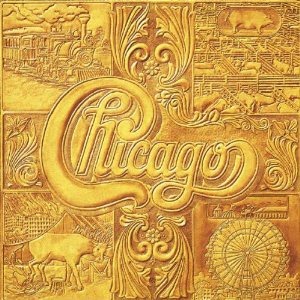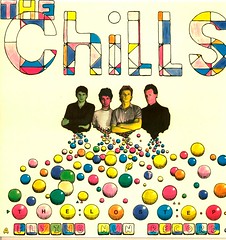
Now for something much better - it's a bunch of records by the ultimate traditionalists, the Chieftains. The first eponymous album released in 1963 was intended to be a one-off release, an opportunity for a bunch of excellent semi-professional traditional Irish folk musicians to spend some time in the studio and knock something out. As members of Sean O'Riada's Ceoltoiri Chualann, they recorded the Chieftains album as a sort of side project. As a result what we get is an entirely unadorned set of performances of traditional tunes played superbly and with gusto, but with absolutely no studio work at all - it's just some musicians playing their tunes, and it's lovely. There isn't so much of the sense of folkloric mysticism about it all that came to be a fundamental part of the Chieftains character in later years, it's just some great tunes played straight by some great young musicians. There's real democracy in the performances on the first album, but the tunes which feature Paddy Maloney's Uillean pipes at the fore are superb and demonstrate that it's no surprise he would come to dominate the band's sound.

Second album, Chieftains 2 (1969) is a real step forward in terms of the band being a recording outfit. With Sean O'Riarda's failing health, the band took another turn in the studio but this time out you can hear a clear sense of purpose to the record, and it's clear that when O'Riarda died the band knew they would have a new outfit to focus on. The material that they've chosen for Chieftains 2 is even better suited to their revivalist approach and the reels and jigs are great, but the ballads are particularly fine. The pipes are given preference over the fiddle and the trademark Chieftains sound is clear for the first time. The focus in terms of the performances is fantastic and the use of the studio as a recording tool rather than a facility is evident - the production is incredibly clear for a relatively primitive recording. It's a beautiful album and it really gives the lie to the notion of traditional folk as a naff and ultimately navel-gazing music. Chieftains 4 (1973) is more of the same, but this time some real extra depth is introduced by a more pronounced role for the bodhran, and especially with the arrival of the mighty Derek Bell and his harp. Bell's impact on the sound of the Chieftains was immense and he really brought that strange sense of folkloric mystery with him, despite looking like a troubled bank clerk from the 1950's. I don't think the choice of tunes on Chieftains 4 is as good as on 2, but the album as a whole is better.


Better yet is Chieftains 5 (1975) which consolidates all the players strengths, and they really bring out the best in each other. There's such a determination, such passion in this stuff, it really raises the spirits. The whole thing is so fluid, and yet so cohesive and it acts as a real reminder that revivalism is as much to do with the joy of experiencing any music today as it is with re-enacting the past. It's glorious stuff, alternately surging forward and serenely drifting along. Again, a lot of it is to do with the calming influence of Bell's beautiful harp playing but the whole band are in fine form, Maloney marshalling his troops with absolutely clarity and conviction. Finally we have Chieftains 6: Bonaparte's Retreat (1976). As a concept album this chimed weirdly with the prog rock crowd in the US who I guess had spotted Paddy Maloney's guest spot on Mike Oldfield's Ommadawn. It's grossly inappropriate to suggest that Bonaparte's Retreat has anything really to do with prog, it's another superb revivalist folk album, but admittedly it is built under a 15-minute centrepiece which has a number of time changes and structural peculiarities, but I think that's just a traditional way of playing folk, fusing a number of melodies together and creating a larger whole. Although not as accomplished as Chieftains 5, Bonaparte's Retreat is an easier listen, it's essentially undemanding on the whole and is probably the most likely of the early albums to garner winces from unbelievers. There are phrases which do veer dangerously close to corny, but to my mind they sail clear by dint of such unswerving skill and dedication to the notion of folk as a living musical form, not a dead one that they're digging up. It's lovely stuff. It is also quite a surprise to hear Dolores Keane singing on the title track, as up to this point all of the Chieftains albums had been strictly instrumental.


Next we have some classic 80's New Zealand guitar pop from the Chills, starting with the Lost EP from 1985. The band had made a couple of singles prior to Lost, and their nous for a great little pop melody was already pretty clear. Lost has six tunes varying from the dreamy 'This is the Way' to the lo-fi punk pop of 'Never Never Go'. It's cheap, scrappy and brilliant pop music, and the influence of the Chills alongside other Dunedin bands has always been drastically underrated. Lost was followed by the 'I Love My Leather Jacket'/'The Great Escape' double A-side 12" single in 1986. Two great little pop nuggets, very lo-fi and in truth a bit silly, but superb nonetheless, Martin Phillipps' brilliant way with a three chord trick as effective as it would ever be.


Their second album was preceded by the 'Heavenly Pop Hit' single, but I can't find the B-side on the internet so it's straight on to the actual album, Submarine Bells (1990). This album came to be the benchmark for the "Dunedin sound", pop music structured on a slightly off-key and teetering musical framework. It's great stuff, a bit like a less studio savvy XTC, trying out various takes on guitar pop, and mostly coming up trumps. There are swaggering, dreamy pop songs, there are piledriving pop songs, there are angry pop songs, delicate pop songs, but everywhere you look there's the sound of a band who care about why pop music is important, how it can sound great, what it can do. Phillipps' voice is an acquired taste when he's being serious, but the songs are just undeniable.


To finish we go back a step, I forgot to check youtube for the Chia Pet 7". The B-sides aren't to be found, but the A-side of 'Hey Baby' is there. It's rubbish. I was so looking forward to hearing it again because it was a central part of my riot-grrrl phase. It's like Le Tigre but way, way worse. Still, the fact that it was the work of the editor of Sassy means it's still got some curiosity value I guess....
No comments:
Post a Comment